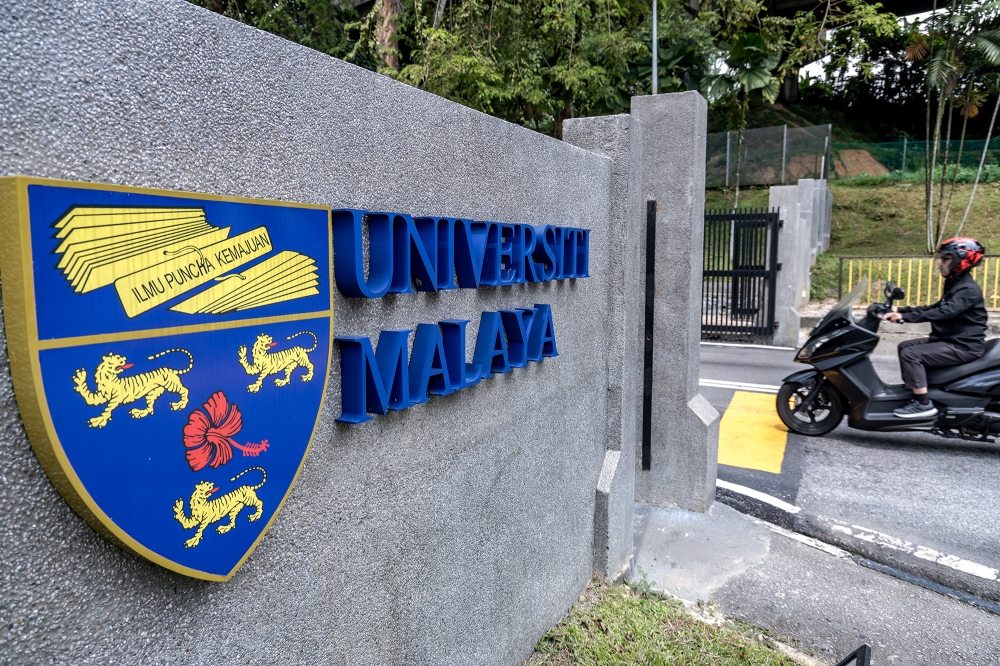DECEMBER 24 — I refer to the report “UM suspends lecturer over inappropriate sexual messages”.
According to the report, Universiti Malaya (UM) has announced the suspension of a lecturer involved in sending inappropriate sexual messages, in accordance with the Statutory Bodies (Discipline and Penalties) Act 2000 (Act 605).
First thing first. It should be interdiction (ditahan kerja) and not suspension (digantung kerja). Act 605 itself distinguishes between the two.
Why Act 605?
One must recall that UM is established under an Act of Parliament, namely the University of Malaya Act 1961 (Revised 2007) (Act 682). The statutory name is University of Malaya.
Act 682 makes UM a statutory body. Accordingly, since November 1, 2000, Act 605 applies to UM.
One may refer to the case Universiti Utara Malaysia v Mutiara bt Mohamad & Ors and another suit [2011] 9 MLJ 655 where the High Court held that all matters on discipline of officers of federal statutory bodies including that of University Utara Malaysia (UUM), which is established under the Universities and University Colleges Act 1971 (Act 30), are governed by Act 605.
Section 3 of Act 605 says that the Act shall be read together and construed as one with the incorporating law of a statutory body. This simply means that Act 605 forms part of Act 682 and the Constitution of UM as contained in a subsidiary legislation known as PU(A) 107/1997.
Section 5 of Act 605 says that the Regulations contained in the Second Schedule shall apply in respect of the discipline of officers of a statutory body, including UM.
An officer is a person who is employed on a permanent, temporary or contractual basis by a statutory body, and is paid emoluments by the statutory body, and includes a person who is seconded to any subsidiary corporation or company of the statutory body or any other statutory body or any Ministry, department or agency of the Federal Government or any department or agency of the Government of any State or any company in which the Federal Government or the Government of any State has an interest.

A UM lecturer is therefore subject to Act 605 and the Regulations contained in the Second Schedule.
The breach by a lecturer — or any officer of a statutory body for that matter — of any provision of the code of conduct set out in the Regulations shall render him liable to disciplinary action.
The code of conduct is set out in extenso in Part II of the Regulations. These include not to conduct oneself in such a manner as to bring the statutory body into disrepute or to bring discredit to the statutory body.
Part V of the Regulations sets out the Disciplinary Procedure to be followed when an officer is subjected to disciplinary proceedings.
I do not wish to go into details of the procedure. Suffice to say that it is imperative that the procedures as set out in the Regulations be complied with, failing which a breach of the principle of natural justice may occur.
Take the example of the recent case of Hayatunnisah bt Sulaiman v Datuk Roger Tan Kor Mee & Ors [2022] MLJU 929 where the High Court found that the disciplinary proceedings against an officer of a statutory body were in breach of the principle of natural justice on the rule against bias and the right to be heard.
In a later of case of Dr Jumiati bt Ismail v Universiti Teknologi Mara (UiTM) & Anor [2023] 8 MLJ 706 the High Court similarly found there was a breach of natural justice, entitling the plaintiff, who was a lecturer for almost 34 years (most of which was spent in the service of the university), to a declaration that she be given a pension, gratuity and golden handshake.
The cases are reminders to statutory bodies to comply with the requirements of law in respect of the discipline of their officers.
If the law is complied with, justice will be served.
*This is the personal opinion of the writer or publication and does not necessarily represent the views of Malay Mail.





















